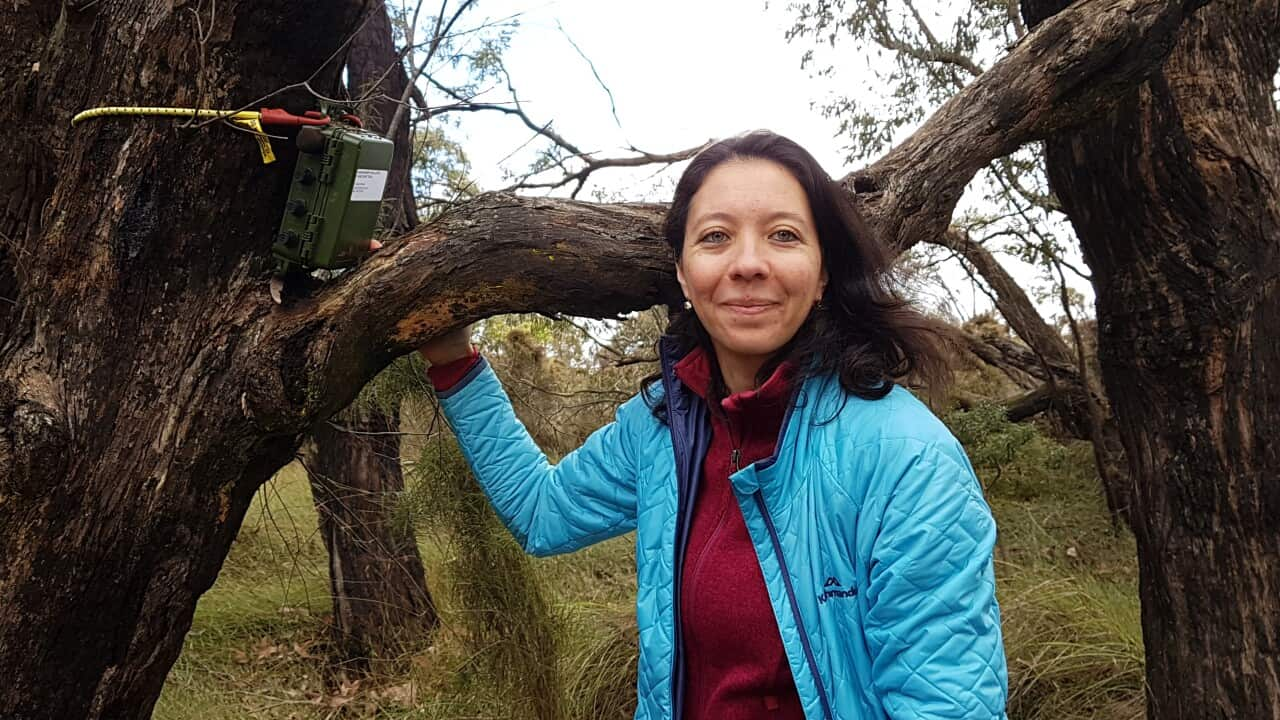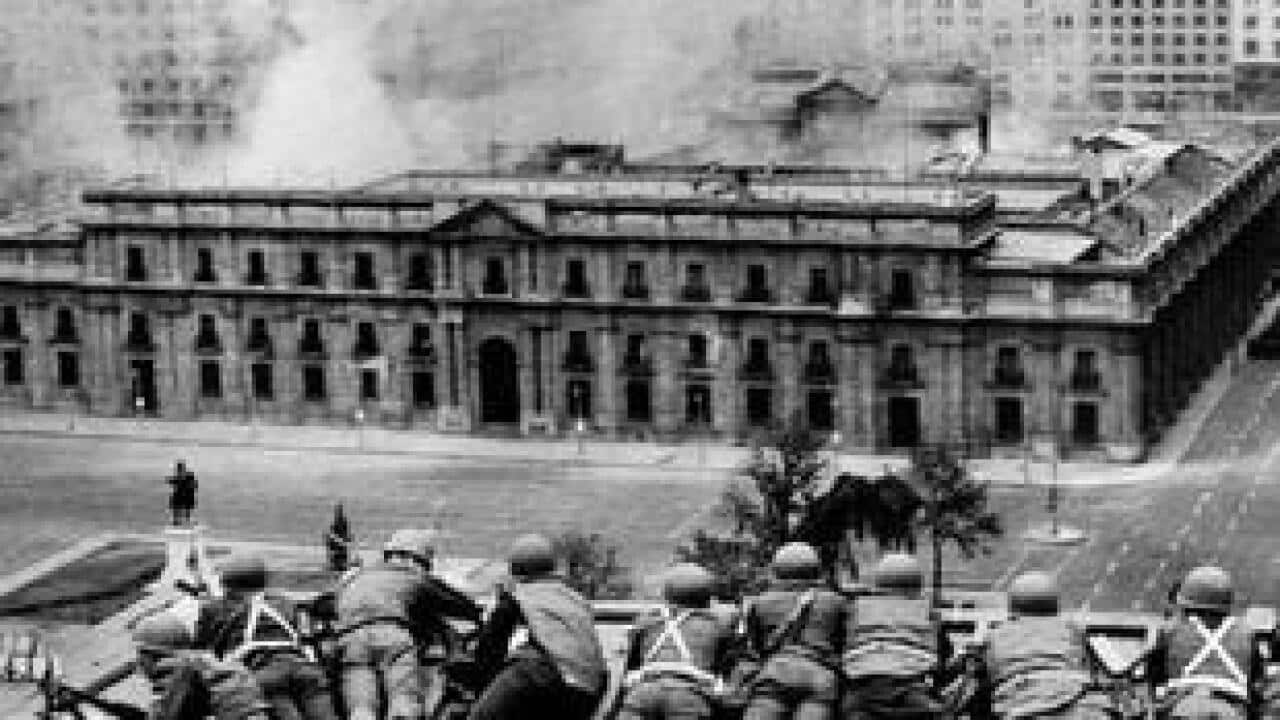What's in a name? Apparently, more than you might think.
Since bursting on to the scene three years ago with a call-up to Peru’s under-15 football team, Osama Vinladen Jiménez has turned heads not only for his exploits on the pitch.
His name's obvious similarity to former al Qaeda terrorist leader Osama Bin Laden was again brought to the forefront in October after the now 18-year-old signed with Peruvian second-division club Unión Comercio.
In a recent interview with the Que T'hi Jugues radio show, Vinladen explains that his father chose the name because the former terrorist leader was “in the news” in 2002 when he was born.
"I thought about changing my name but now I like it, it was fashionable in its day," he explains.
"My brother's name is Saddam Hussein and my father wanted to name his third child George Bush, but it was a girl."
News of his signing sparked commentary on social media
While his name may venture into the realm of the bizarre, the phenomena of unique names is not a new thing in Latin America.
From what's been seen across the region, babies have been named after almost anything, from celebrities or popular identities to foods, or even viruses.
Some other wacky names seen include Usnavy, after the US Navy, and Neurona H2O, the name given to the daughter of Peruvian psychologist Mario Poggi, who famously killed a serial killer in 1986.
Strange baby names have also emerged in the region and internationally from the coronavirus pandemic, including Covid, Corona, Lockdown and Sanitiser.
Peruvian sociologist Guillermo Nugent, an academic at the Universidad Nacional Mayor de San Marcos tells SBS Spanish that in many cases, parents at the registrar choose names “that are said the most at that time".
Cuba: The names of a revolution
The naming of babies after figures in popular culture was seen immediately after the 1959 Cuban revolution, where there was a surge in the number of Fidels, Rauls and Ernestos.
During the 1970s, as Cuba forged closer ties with the Soviet Union, the name Lenin rose to prominence, after the leader of Russia’s Communist revolution.
Australian anthropologist Adrian Hearn spent many years in Cuba, a country he says is well known for its "particular naming tendencies”.
“Cuba is well known for its particular naming trends, but how did this come about, and what can it tell us about the intersection of politics, culture, and family life?
“One thing it tells us is that time matters. The generation that brought children into the world during the 1970s and 1980s lived through an era of close official ties with the Soviet Union, which brought an influx of Russian engineers and diplomats. Many children born during those years bear names that reflect this dynamic, including Yuri, Idorka, Yulieski." In 2012, the news agency EFE pointed out that in Cuba, some names create problems and generate social debates.
In 2012, the news agency EFE pointed out that in Cuba, some names create problems and generate social debates.

People playing in a band in Cuba. Source: Dateline
For example, the mixture of names causes confusion, like Robelkis (Roberto and Belkis), Migdisray (Migdalia and Raymundo), or the inversion of words like Ailed from Delia; Adianez for Zenaida, and even Orazal for Lázaro.
Among the most particular cases, were the Creole adaptations of foreign terms, many of them from English - Leydi for "lady", Maivi for "maybe", Olnavy for "Old Navy", Usnavi for "US Navy", Usmail for "US Mail" and Danyer for "danger".
“The collapse of the Soviet Union forced Cuba to open to foreign tourism and an influx of American young people supposedly on ‘study tours’ to comply with Washington’s travel restrictions," Hearn says.
"Influences became evident from the 1990s to the 2010s in popular Cuban names such as Usarmy, Usmail, Rkelly, and more conventional, but not Spanish, names like Jordan and Peter." Hearn says many of his Cuban friends, who bore Russian and US-inflected names, are now having their own children.
Hearn says many of his Cuban friends, who bore Russian and US-inflected names, are now having their own children.

Source: AP
“The trend of externally inspired monikers seems to have passed, giving way to creative approaches born and bred at home. My drumming teacher Mickey confused me when he announced that he was naming his baby girl Sorgalim.
“His motive became clear when he pointed out that she is named after her aunt Milagros—in reverse. A neighbour recently named her daughter Ochun, after the female deity of streams and sensuality from the Yoruba tradition of West Africa that for centuries has permeated Cuba’s rich culture.
“Similarly, a family doctor living a block away in the Los Sitios suburb has a new dog that he has named 'Ariku', denoting the Yoruba concept of warding off death.”
Names during COVID-19
In the midst of the global health crisis in April, a couple from the Philippines named their daughter Covid Marie to remember “that the coronavirus not only brought us suffering. Despite all this, a blessing came to us," his mother Colline Tabesa told AFP.
A couple of migrant workers from northeast India, who were blocked from their homes in the state of Rajasthan, chose to call their son Lockdown, to “remember all the problems that we faced during this difficult period," the father explained.
Legal problems
Nugent, who has written books about the subject, explains that “In popular sectors, singular names are a protection against homonymy and prevent arrests and imprisonments."
“Homonymy has led many innocent people to unjust arrests and imprisonment. I would think more about a legal precariousness than an educational precariousness [although both precariousness go hand in hand, of course]”, the Peruvian sociologist emphasised when clarifying that it is not necessarily a problem of education or the socio-economic origin of the parents who give their children quirky names.
Names and celebrities
You don't need to stray too far to find a celebrity who has plucked a baby name from obscurity.
Examples include Ed Sheeran and his wife Cherry Seaborn who named their first daughter Lyra Antarctica, or billionaire Elon Musk who opted to name his son X Æ A-12 Musk (pronounced X-Ash).
"In the case of the rich and famous, well they feel so unique that their children can only have unique names," Nugent adds.
Countries can also reject the names chosen by parents. In 2019, New Zealand's Department of Internal Affairs released a list of baby names that have been rejected including Lucifer, Mafia No Fear, and Majesty.
The 2018 list of rejected names included Allah and Gunner, among others.



